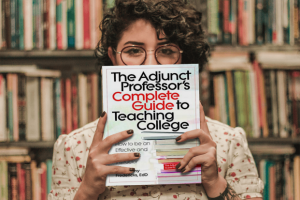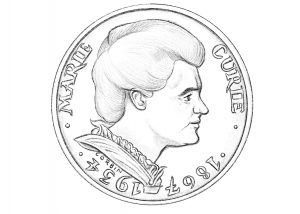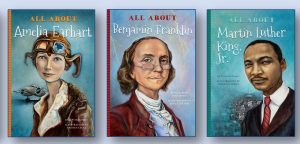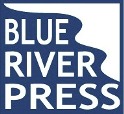Blog
Lost in the Wilderness (Part 1)
Mind Matters
An Occasional Column by Anthony D. Fredericks
Lost in the Wilderness (Part 1)
This Fall, 700,000 adjunct instructors will be hired to teach more than 16 million full and part-time undergraduate college students. Depending on the institution, 50-70% of all college instructors will be part-time. Research clearly demonstrates that the majority of those instructors will receive absolutely no guidance or training in teaching college students. They will be lost in the wilderness.
 At most colleges, there’s no indoctrination program or training initiative for adjunct instructors. Adjuncts are expected to “know their stuff” and how to impart that knowledge to impressionable college students. Unfortunately, they are set adrift with very little support. Here’s some critical information often missing or neglected:
At most colleges, there’s no indoctrination program or training initiative for adjunct instructors. Adjuncts are expected to “know their stuff” and how to impart that knowledge to impressionable college students. Unfortunately, they are set adrift with very little support. Here’s some critical information often missing or neglected:
1. College students don’t learn everything you teach them. You’ll put together a dynamic lesson, pull in some really interesting podcasts, and design the most creative PowerPoint presentation ever seen by human eyes – and students won’t learn! It’s a sad reality, but the truth of the matter is that output is not always equal to input. There is no guarantee that the time and effort you put into a lesson will result in students ready to craft a Nobel Prize winning physics experiment. No matter how excellent you think your lessons are, the reality is that there will be some students who just won’t get it.
2. Who you are is more important than what you know. Students will not judge you based on the quantity of “stuff” you have in your head. Your evaluation, in the eyes of students, will be based primarily on how you made them feel. Did you go out of your way to make them comfortable in the classroom? Did you acknowledge their presence on a regular basis? Did you give them valid opportunities to make choices and follow through on those choices?
3. Affect is more important than knowledge. Here’s an absolute fact of life about teaching college: The more I know about my students, the better teacher I will be. The fact that you can name all the democracies in sub-Saharan Africa does not make you a good college instructor. You will not distinguish yourself as a teacher by sheer brain-power; you will, however, distinguish yourself by what you do with your knowledge.
4. No one has all the answers. Heck, I taught for more than fifty years and I still asked for help on 1) integrating more technology into my classes, 2) more effective ways of assessing student progress, and 3) innovative ideas for beginning any class session. Asking for help, particularly during your first college course, can be one of the surest paths to teaching success. Please don’t cocoon yourself from the larger teaching community. Please know that when you approach someone and ask for help, you are showing trust; and through trust you are building community.
Adjunct professors are frequently the lifeblood of a department or college. Not only do they bring in experiences from the “real world,” so too, do they bring in their own unique brand of excitement and enthusiasm. In a nutshell, they do it because they love to teach and they love to share their expertise with a new generation of learners. The benefits are not necessarily in a paycheck, but rather in the mutual energy they share with students.
_____________________
 Dr. Anthony D. Fredericks is Professor Emeritus of Education at York College of Pennsylvania. He is an award-winning author of more than 170 books, including The Adjunct Professor’s Complete Guide to Teaching College as well as five other Blue River Press titles (e.g. From Fizzle to Sizzle).
Dr. Anthony D. Fredericks is Professor Emeritus of Education at York College of Pennsylvania. He is an award-winning author of more than 170 books, including The Adjunct Professor’s Complete Guide to Teaching College as well as five other Blue River Press titles (e.g. From Fizzle to Sizzle).
All About Marie Curie Won Gold in Young Reader Nonfiction
Putting much time and effort into an important project whether it is a work of art, a game of sports, or writing that novel you have always dreamed of; one attains a great feeling of achievement and worth when that project is completed. Even more so when the effort is recognized and awarded. Publishing company, Blue River Press, author Claire Caprioli, and illustrator Moriah McReynolds recently experienced that feeling of accomplishment when Independent Book Publishers Association announced that All About Marie Curie won Gold in the YOUNG READER: NONFICTION (8-12 YEARS) category. Congratulations to Blue River Press, Claire Caprioli, and Moriah McReynolds. 
Madame Marie Curie, a remarkable woman
In the late 1800’s Warsaw, Poland was under the rule of the Russian Czar. Though Maria was a proud Polish girl, she had no country to call her own. At that time, Poland didn’t exist, and life was a difficult for the Polish people. Children were not given the same chance as their classmates in school, they were handed lower grades, and women could not get a higher education. They were not permitted to speak their native language either. That, however, did not stop Maria Sklodowska. She completed high school at the young age of fifteen with the highest honors and a gold medal. Then behind the scenes, she was secretly hired to teach farmer’s children the Polish language. Today, Maria Sklodowska is better known as Madame Marie Curie.
Madame Curie was the first woman to be awarded a Nobel Prize when she received the Nobel Prize in Physics, but she stunned everyone further when she was awarded the Nobel Prize in Chemistry. This made her the first person to ever win two Nobel Prizes!
Young readers will dive into and learn the fascinating life of this remarkable and inspiring woman in All About Marie Curie.
IBPA Benjamin Franklin Award
It is always an honor when one of the Blue River Press titles is recognized by this award. We are appreciative and grateful for this.
This award recognizes “excellence and innovation in independent publishing. Unlike many other awards contests, the IBPA Benjamin Franklin Awards demand both editorial and design excellence.”
The All About…Series
Three years and four months after the launch of the All About… series books on November fifteenth 2016, Accelerated Reader released AR Quiz No. 508797 for All About Amelia Earhart. That book has gone on to gain 3.5 out of 4 stars for reader reviews. Since March of this year, AR has released quizzes on all but two of the titles.
More On the All About…Series
Each title is written by proven authors who are experts in their field. Students can earn 2 points on Accelerated Reader. It features illustrations, index, glossary, bibliography, recommended reading, and quotes. 
The award-winning All About…Series is designed for readers in grades 4th-8th and their parents, teachers, and librarians to enjoy. A team of authors, illustrators, designers, marketers, and editors are committed to developing educational in addition to entertaining books. From people to places the All About…Series for young readers will help them understand better the lives of the world’s greatest explorers, innovators, scientists, personalities, and places that make a mark in this world. Teacher’s guides are available here.
You can see more of our All Abouts… here. You can receive downloadable Teachers Guides at this location. If you have any questions, please contact us or give us a call at 317-352-8200.
Blue River Press has more than 100 books and e-books in print and is distributed nationally by Cardinal Publishers Group.
Happy Reading!

